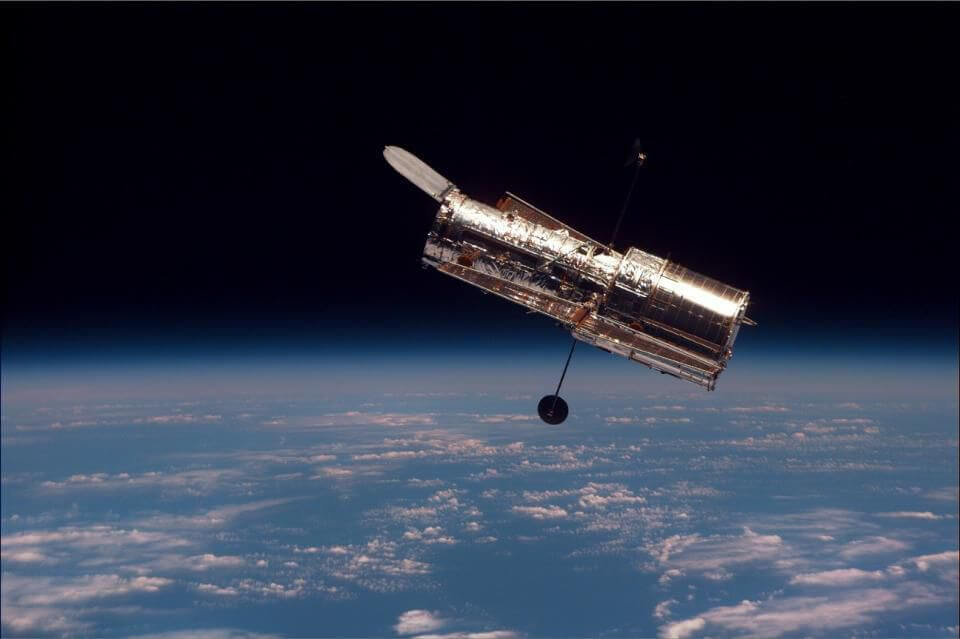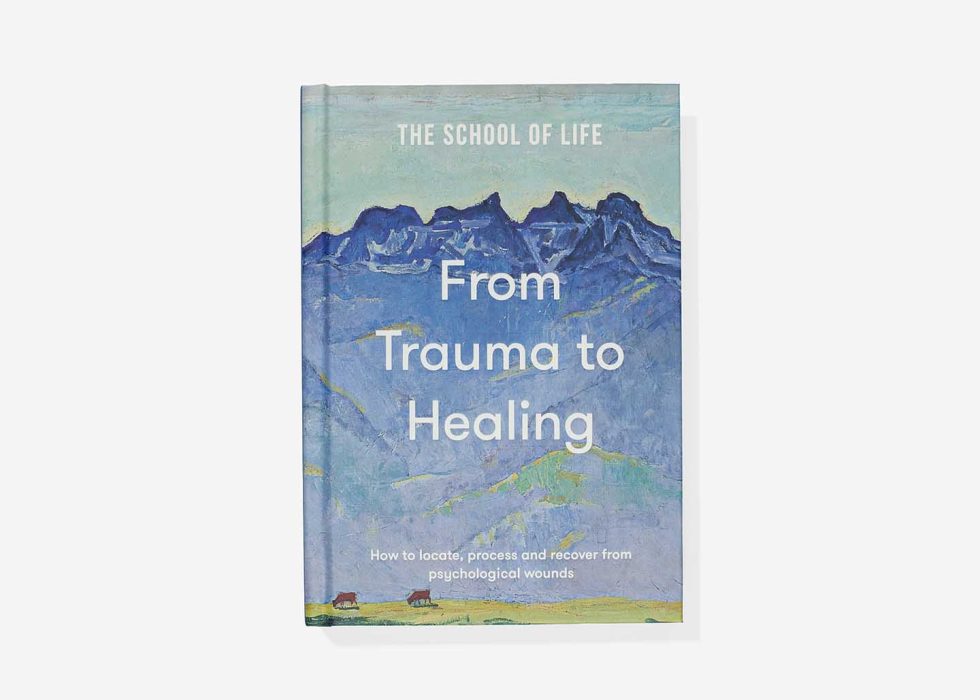Self-Knowledge • Behaviours
You Don’t Need Permission
When we first arrive on the earth, nothing is more alien to our minds than the idea of needing permission. We simply try to do whatever we want: when the carpet looks interesting, we give it a lick. When the cat annoys us, we give its tail a yank. When there’s an intriguing plug socket, we push our fingers into it. When we wonder what something might sound like as it hits the floor, we give it a shove. We try to get everything right now or we scream.

But soon enough, a lot of contrary messages come our way. Liking something isn’t enough. You must always ask, not just take. What you want is probably owned by someone else, and they need to give you their approval. A lot of what you crave may hurt others. You need to act a bit less and think a bit more. In fact, a great deal of what you want is just a terrible idea. The smile that comes back indulgently but firmly on a hundred thousand occasions says as much: no, that’s someone else’s, no, we don’t do that sort of thing here; no, that would be unkind… Unfortunately, it seems as though the most exciting new ideas continuously defy the rules of existence: apparently, you can’t just strap a radio to the hamster, you can’t eat only cake for lunch, you can’t bury your brother in sand, you can’t drill a hole in someone’s head to hear their thoughts. And we learn a few sobering things about timing. It has to happen after homework. Next year. When you’re an adult. There’s seemingly no situation that doesn’t require waiting infinitely longer than one would have liked.
And so we grow up with a host of background ideas about what we’re permitted to do, what the status of our longings is and where kindness and goodness might lie. We learn that we need to check in constantly with a parent to make sure that we have their nod to ride our bike to the shops. We need to ask before we switch subjects at school. We have to put our hand up before we say anything in class and have to have a permission slip to go to the doctor. At university, we need to get our thesis topic approved; at work, we need to check with the HR team if it’s OK to work from home on Friday. Even in personal life, prohibitions abound. We can’t just end a relationship like that, especially when there’s a holiday planned. Now we are living in a certain country, it would be very strange and costly to move. Things are not very satisfactory, but who are we to change them, given how silly we probably are?
We’re no longer the infant who just popped everything interesting into its mouth and smiled. Now we look around and wonder: Is this OK? And generally we cease to wonder very much. We simply assume it’s probably not. Even in the absence of active prohibition, we stifle our impulses. We internalise those millions of nos. Being a good adult becomes synonymous with waging a war on our wants. We get very good at being patient. We develop guilt about our desires. We are aware of how much our needs might hurt others. We look for approval from teachers, bosses, governments – and perhaps gods. We imagine that most of what already exists defines what is sensible and plausible; if it hasn’t happened by now, there must be very good reasons why it shouldn’t going forward. And we’re careful not to hurry; even if we do have a goal in mind. Far better to wait a decade or two rather than risk any sort of rash move…
It’s an attitude that serves us well in some areas. We know how to save ourselves from some of our more counterproductive desires. But the irony – and eventual quiet tragedy – is that the older we get, the less our wants are in fact liable to be foolish, vain, nasty or impatient. We may well want some pretty sensible and for us pretty essential things. And yet we wage war on ourselves with some of the same harshness, intemperance and mockery that might once have been deployed on us when – many years before – we were desperate to drink the whole chocolate fountain at the mall. Precisely as our wants get more legitimate, our arguments against them burn on with the punitive energy of early childhood.
So we may want to start a business, leave a relationship, shift city, imagine another way of living, structure things very differently at home or rearrange how we spend the weekends – and move not a millimetre.

It can take so long for us to learn that the appropriate rules of engagement with our desires might look rather different from what we were brought up to believe.
– The desired thing may not be so silly at all; our wants aren’t all daft. We can have very big and still very legitimate dreams.
– The desired thing might not have a possessor, a licensor or a permit giver. It may lie outside the realms of ownership. There may be broad indifference to whether we act in some way or not. There may be no law and no one to be upset by our move.
– The prize might just belong to whomever dares to step forward and take it. There’s no formal procedure, it’s just the courage to imagine it could be ours.
– Another person may want it as much as we do. Our desires don’t always upset others. The fact that we want it isn’t a sign that the other automatically won’t want it as badly.
– The reason why certain ideas haven’t happened isn’t necessarily because they are silly, but because there is a strong and always surprising lack of originality in human conduct. We are creatures of tradition. That it doesn’t exist isn’t a sign that it can’t or shouldn’t, just that everyone is as much waiting for permission as we are.
– And lastly, maybe we aren’t well served by waiting yet longer. We are dealing with a finite currency of time. Our wants don’t miraculously get better by being put off. It might be more than sensible to want this immediately: to decide we can write a book at 24, or own a business at 17 or walk out on a relationship at 52. We don’t have forever. We could try to do this before sundown.
We need, in short, a new philosophy of wanting – wanting as an overall concept rather than in relation to wanting anything in particular. We need to take a highly surprising message to the sensible eleven year old boy or girl who is inside us, still monitoring our impulsive selves with strictness but little imagination: that the time for permission is over.
Our resigned mental structure is a feature of religion and politics as much as of individual psychology. For most of human history it was customary to believe that permission had to be sought via sacrifices, special rituals and prayers from the superior beings and forces that governed the cosmos. The foundational myth of Rome tells us how the citizens were originally unable to decide where to build their city and were reluctant to start construction until they had received a sign from the gods – which eventually arrived in the form of twelve birds flying over the Palatine hill. Having received the proper divine approval for their plan, they were ultimately rewarded, many generations later, with mastery of the known world, the implication being that if they had proceeded without permission, the city would never have prospered.
We may assume we don’t share this cowed and primitive view of the world, but our underlying attitude – in its essential form – suggests we do. We don’t quite know whom we are asking, and we can’t say precisely what approval would look like, but in an archaic part of our minds, we’re still waiting to be given endorsement for many of our most cherished plans. We want to know from some potent but undefined source that if we act we’ll still be good people, that we won’t be punished, that this is allowed, that we won’t bring down retribution on ourselves or trouble the universe.
But the truth, of course, is that there won’t ever be signs that completely reassure or permit us around a majority of courses of action in adult life. There is no cosmic authority to allow or frown, to get angry or to punish us. We are on our own. There’s no figure who can, as a parent once did, tell us it’s OK for us to move forward or that we must sit back and wait five more years. Our maturer picture of the world is genuinely godless: it’s a less intimate, colder idea of reality. The universe doesn’t have a plan for us: it doesn’t care what we do or why we do it; it doesn’t punish our transgressions or reward our virtues. We’re alone, and free with our own decisions. In a momentous passage, the Russian novelist Dostoevsky reflected that if there were no God, everything would be permitted. He feared anarchic self-indulgence, but there’s a sweeter side to his worry: everything that is important to us is, in fact, permitted already. We’re answerable only to our best understanding of ourselves, to our self-knowledge and to our noblest intentions.
Revealingly, our culture is fascinated by inventors and artists who struck out on their own, went strongly against the tide of current opinion and were eventually vindicated, even if only after their deaths. We get excited by the stories of their lives because we unconsciously find in them something that’s missing in us: a bold indifference to permission, a corrective to our timidity. Poignantly, the most popular song people request at their funerals is Frank Sinatra’s secular hymn to mature independence, My Way. Not because so many of us have really managed to live without the need for permission but because, at the end, we so deeply wish we had and so clearly recognise we needed to.



























